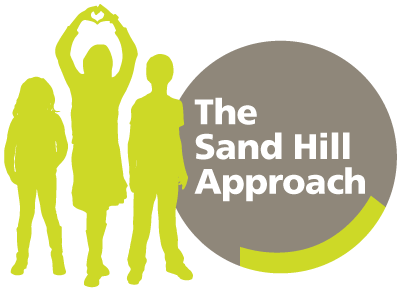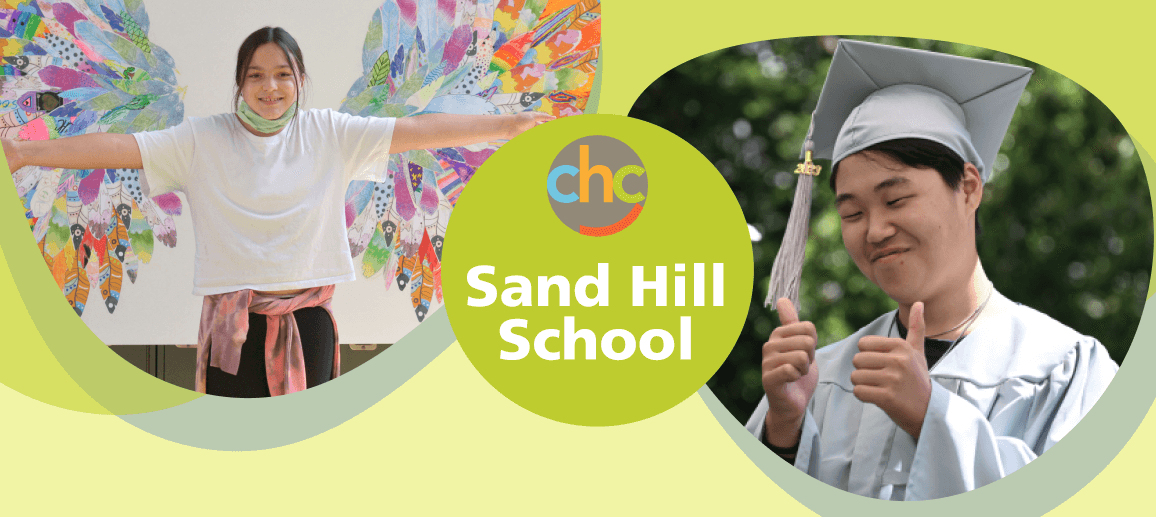The Sand Hill Approach
Because Sand Hill students learn differently, we teach differently.
Many interdependent elements go into The Sand Hill Approach. Leading with student strengths, our expert teaching staff uses evidence-based curriculum paired with instructional practices that are based on the latest neuroscience to deliver intensive academics tailored to each student’s level. We enrich the program with regular opportunities for students to explore visual art mediums and performing arts, plus sciences that include engineering, technology, architecture and having an entrepreneurial mindset. Students are supported by our speech and language and occupational therapists who join classrooms and collaborate with the teachers to further each student’s personalized program. Importantly, daily lessons in Social Emotional Learning, Executive Functioning instruction, and access to assistive technology shape confident and resilient learners who are successful in school, at home and in life.
Roll your mouse over the numbers below to see more detail!

1. Expert & passionate teachers
At Sand Hill, we begin with your child’s strengths and interests and go from there. The academic program, delivered in a way that honors your child’s unique learning style. Our empathetic teachers and specialists are the heart of the school. With years of experience and specific training in working with language-based learning differences, such as dyslexia, our teachers use state of the art teaching practices with a compassionate touch tailored to each individual child.
2. Social Emotional Learning is embedded
Social Emotional Learning (SEL) is a powerful component of the Sand Hill Approach. We directly and explicitly teach our students SEL strategies such as self-awareness, self-management, relationship skills, and tools for responsible decision-making, and we help our students apply those strategies throughout the school day.
3. Executive Functioning skill development
Instruction in Executive Functioning (EF) is an important part of the Sand Hill Approach. We directly and explicitly teach our students EF skills as tools for learning. These include: planning, organization, memory, time management and flexible thinking. We also teach skills like how to organize a binder, how to set goals, learning how to learn, and how to reflect on learning.
4. Relationship-building creates inclusive community
An inclusive, safe, and secure school community is foundational for kids to be ready to develop valuable strategies for learning. As children begin the Sand Hill program, they feel more confident, they make friends and they start to get their shine back. Parents learn to breathe again because their child is excited to go to school and because they know the whole school community is invested in their child.
5. Evidence-based multi-modal instruction
Teachers use evidence-based programs across all curriculum areas to ensure that learners with language-based learning differences have the greatest opportunity to succeed.
- Reading instruction: Fundations® and Wilson Reading System®
- Mathematics: Eureka Math, Making Math Real, and Spatial-Temporal Math
- Writing: Step Up to Writing® (Sopris West®)
- Executive Functioning: Smart (RESEARCHILD), Executive Functions Curriculum (School Specialty)
- Social Emotional Learning: PATHS® (Channing-Bete)
6. Specialist involvement & support
Occupational Therapists and Speech-Language Therapists, and other clinicians from CHC, push in to the classrooms on a regular basis and co-teach with the teaching staff. Communication between classroom teachers and specialists happens daily — this integration creates the best intervention possible. The power behind the collaborative approach with CHC’s clinical staff makes all the difference for students with learning and attention challenges.
7. Striving toward self-efficacy
Children need to feel successful in order to experience success. We work with youngsters to develop autonomy so they know their challenges, know their strengths, and can advocate for themselves. We do this through setting and achieving personal goals, and making sure to hand success to the students as they overcome challenges and learn the skills necessary for transition.
The Result
Kids learn to love school again. They feel more confident, they make friends and thrive in the unconditional support of a deeply connected community. Our strengths-based approach provides students with motivating learning opportunities, and students develop the skills and self-efficacy needed to graduate to more mainstream environments. Parents, too, learn to breathe again knowing their child is in a supportive environment and finally able to re-discover their inner superpowers.
8. Technology
We use technology both to support student learning and as a strategy/tool for learning. Each student in 3rd grade and above has a laptop and iPad loaded with software and apps that become tools for learning.



